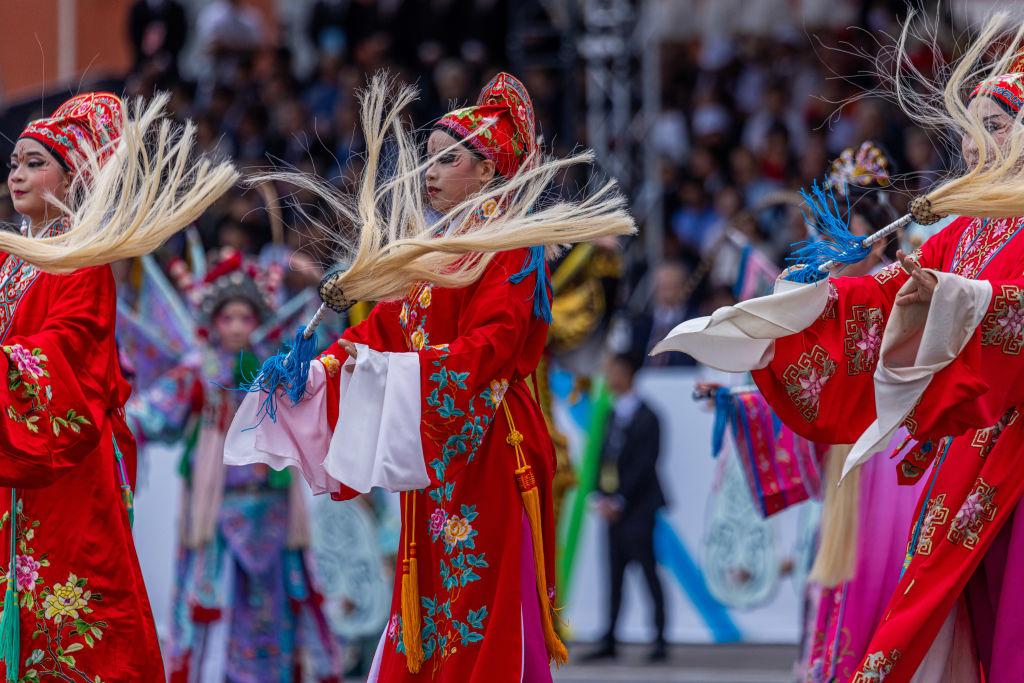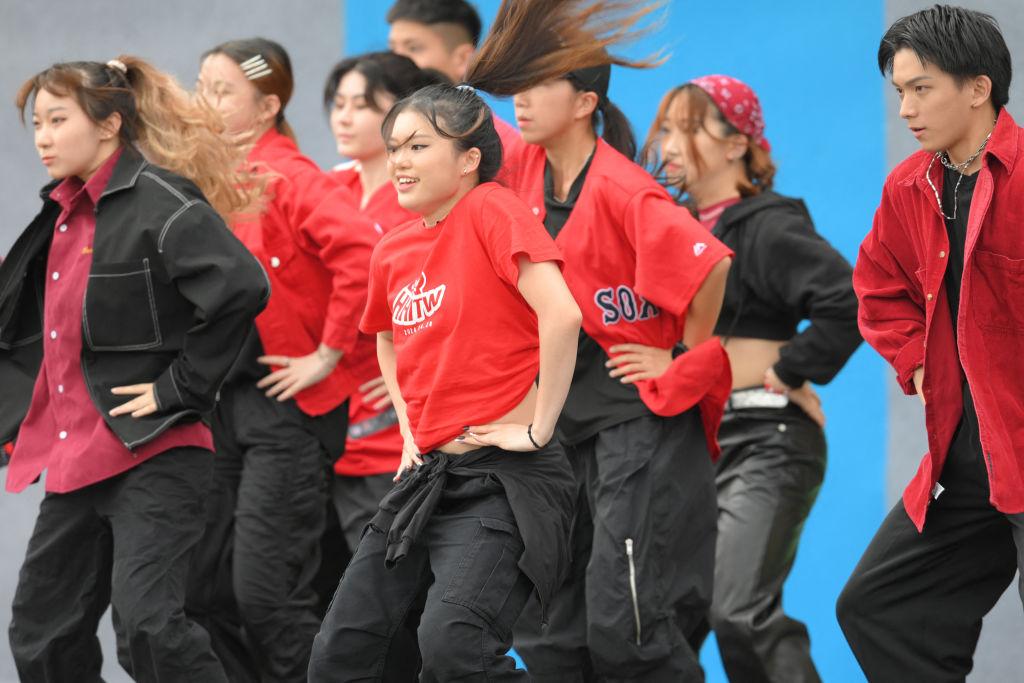The 20 May 2024 inauguration of Taiwan’s new president, Lai Ching-te, was an exuberant and giddy celebration of democracy. The square in front of the presidential office was filled—with performers dressed as food, dancers moving around a giant blue horse, hip-hop artists rapping, and a hard-rock band roaring out lyrics all about ‘Standing Up Like a Taiwanese’.
This message summed up Lai’s inaugural speech as well as the feeling in the crowd. What really got the crowd cheering was the new president and his vice president making the heart sign with their hands and dancing on the stage.
The event was uniquely Taiwanese. I was part of the crowd and pleased to be back in Taipei to see this peaceful transition and example of democracy in action, all this taking place just across the straits from the People’s Republic of China.
I am unwelcome in Beijing, having visited Taiwan in 2021 while I was the US ambassador to Palau. The trip was to mark the opening of a pandemic travel bubble between Taiwan and Palau. I accompanied Palau’s president, Surangel Whipps, Junior, on this historic visit. Palau’s president was also back in Taipei at the time of the inauguration last month, representing one of the 12 remaining countries that continue to recognise Taiwan as a sovereign nation.
The date 20 May has historic significance for Taiwan. It marks two key events in its transition to democracy—from the declaration of martial law in 1949 to the first free election of a Taiwanese president in 1996.
The 2024 inauguration was notable for the happiness and confidence that was evident in the gathered crowds. Despite threats from Beijing, the Taiwanese people are resilient and proud of what is taking place in their island. They have a vibrant democracy (too vibrant sometimes—note scenes in its parliament of representatives scuffling), a dynamic economy that produces more than 90 percent of the world’s most sophisticated silicon chips, and an increasing realisation that it is the people of Taiwan who must determine its future and be prepared to defend what is a great success story.
The Taiwanese people are generally pragmatic and appear comfortable with the status quo in relation to China. The public’s declining desire for political union with China has fallen to record low levels according to biannual polls conducted by Taiwan’s National Chengchi University’s Election Study Center. Taiwanese people want and will need the help of their friends like the United States to secure this peaceful future.
China’s reaction to Taiwan’s new president has been as negative as expected. Official statements have labelled Lai a ‘troublemaker’. There has been no interest in his invitation to resume talks on the future status of Taiwan. Chinese officials have declared Taiwan independence a dead end.
Here in Taipei, the Taiwanese people I have met don’t seem intimidated by the threat of an invasion from the mainland. Yes, all qualified men are required to serve a year in the military, and the government is increasing its defence spending. But in an echo of one Pacific leader’s statement, Taiwan’s people seem sincere in their desire to be friends with everyone and the enemies of no one. I am struck by the positive outlook young Taiwanese have about their future. This is despite the near daily incursions into Taiwan’s military defence zone by the Chinese navy and air force.
The peaceful transition and inauguration of the new president was a celebration of Taiwan’s success—and deservedly so.



